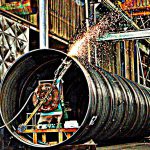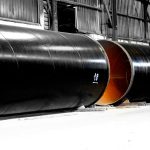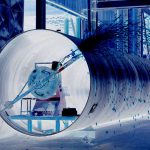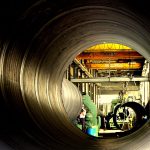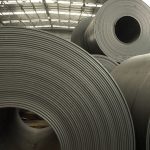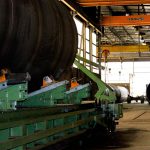The production of welded steel pipes was invented in the 1820’s by James Russell and Cornelius Whitehouse, when the development of the English industrial revolution was at its peak. From that moment onwards, steel pipes have continued to maintain the leadership in pipeline construction for liquids in civil and industrial use, thanks to its chemical and physical properties, which satisfy customers’ requests in terms of performance, safety and convenience.
The properties which define these qualities are mainly:
- great resistance and strength, which allows the pipes to support high levels of additional stress (water hammer, breaking of supports, vibrations and earthquakes);
- maximum reliability in time due to the conservation of the typical mechanical and technological properties of steel, even in the presence of periodical variations of stress tensional surroundings, always guaranteeing and maintaining high security factors;
- maximum flexibility for all types of lines due to the possibility of cutting and welding of pipes and even manufacturing elbows and special steel components on site;
- production in length from 3 m to 13.5 m and more, which ensures a great adaptability both in urban areas (where short tubes could be necessary to bypass other pipelines and other unexpected situations) and in rural areas where using bars in 13.5 meter length allows to make less pipe connections and to reduce transportation costs;
- different types of steel and thickness, to adapt to the different static and dynamic hydraulic situations at the best technical and economical conditions, an advantage that no other material is able to offer in a such versatile way.
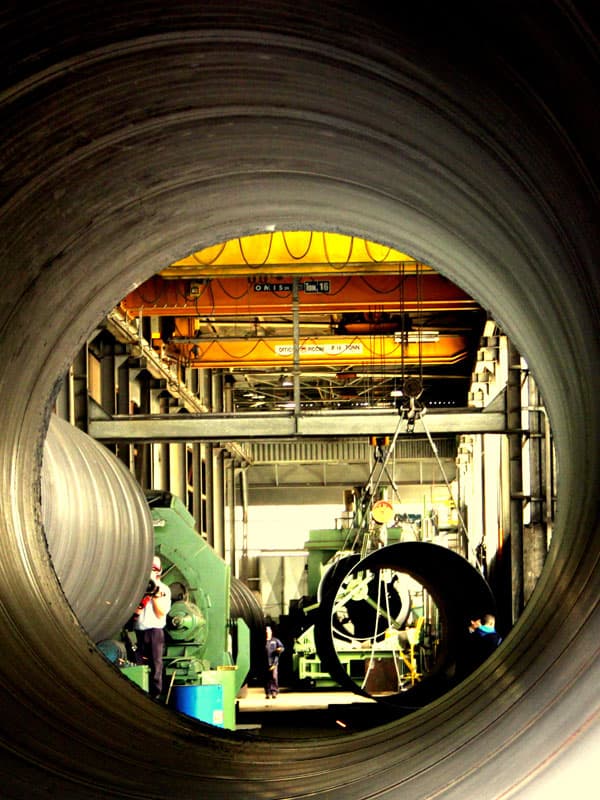
Comparing carbon steel to other materials used in the pipeline construction, it can be said that steel is always the best choice.
Steel pipes compared to cast iron pipes are definitely lighter and therefore cheaper. Special steel components are produced by international leading and also by family-run companies, less expensive and they have shorter production times (above all for large diameters) than cast iron components. Furthermore, they do not need to be anchored in blocks of cement, which takes more time in the laying down of the pipes and for this reason costs more.
Steel pipes do not present the problems of progressive decay of its mechanical properties, typical of pipes made by polymeric material (PEAD and PVC). This makes steel pipes more durable than polymeric ones.
Steel is also notoriously less sensible to thermal changes, which should be taken into consideration during storage and pipe laying.
Moreover, steel pipes are not subject to the release of polymeric substances into the transported fluid. Steel pipes are impermeable to substances like hydrocarbons, pesticides and solvents, which sometimes can filter through the pipes and contaminate drinking water damaging people’s health.
Compared to cement pipes, steel pipes have much better mechanical and hydraulic properties: a stronger mechanical resistance and a major sensibility to dynamic loads. The joints are also very resistant, steel pipes are impermeable to external agents that could filter into the drinkable water pipelines. Finally, steel pipes are not fragile, avoiding breakage in movements and during the pipe laying.

